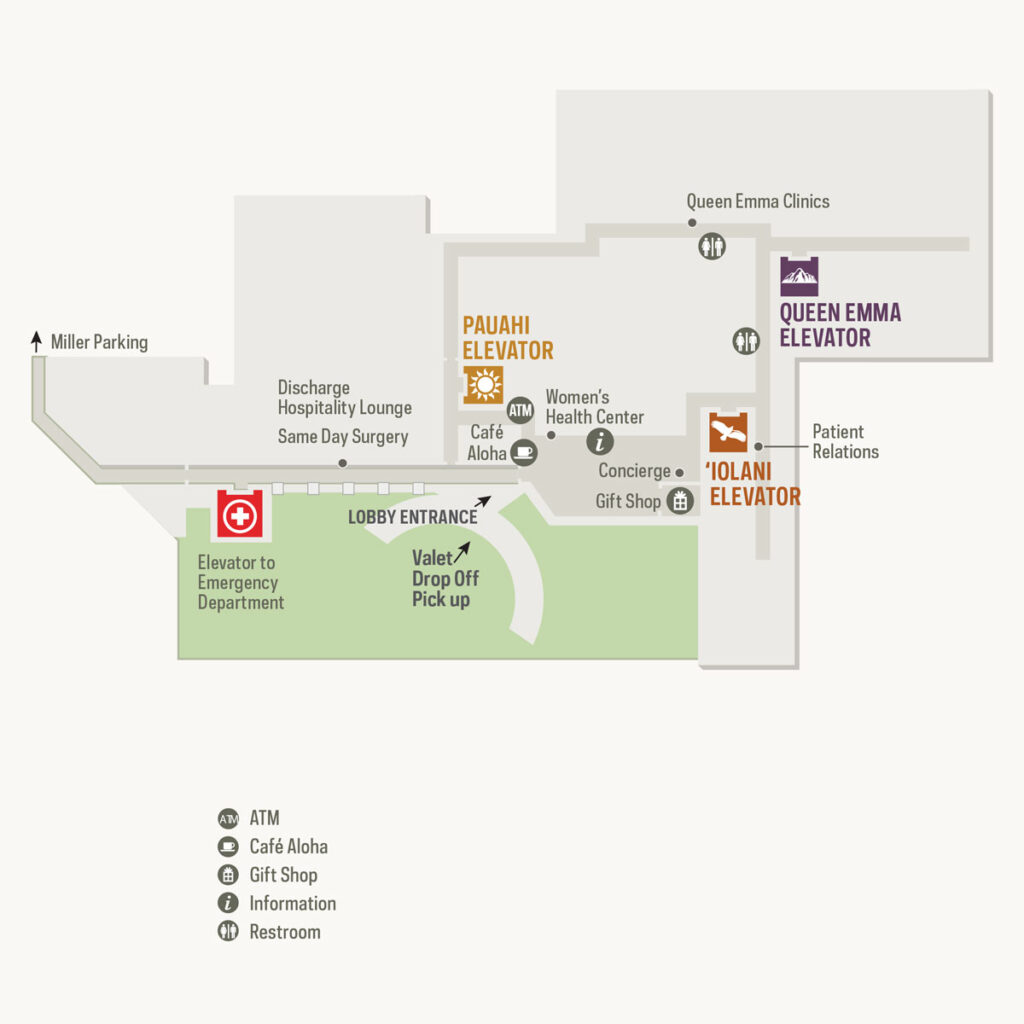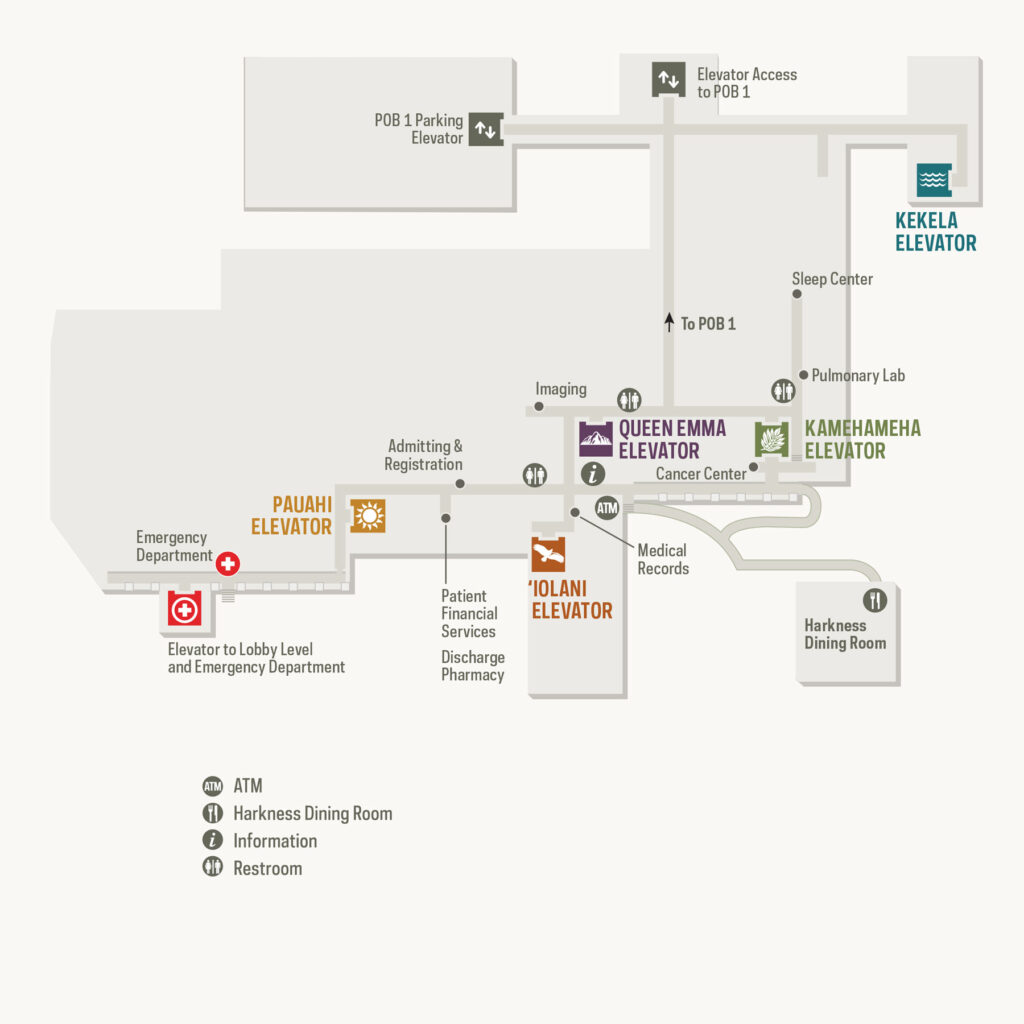The Queen's
Patient Guide
E Komo Mai
Our entire ‘ohana, our Queen’s family, is dedicated to providing you with the highest quality care and exceptional service. Putting patients first is our number one priority.
We encourage you to refer to this guide both in the lead-up to and throughout the course of your stay. Doing so will guarantee that you and your loved ones have convenient access to all the essential information necessary to enhance your experience.
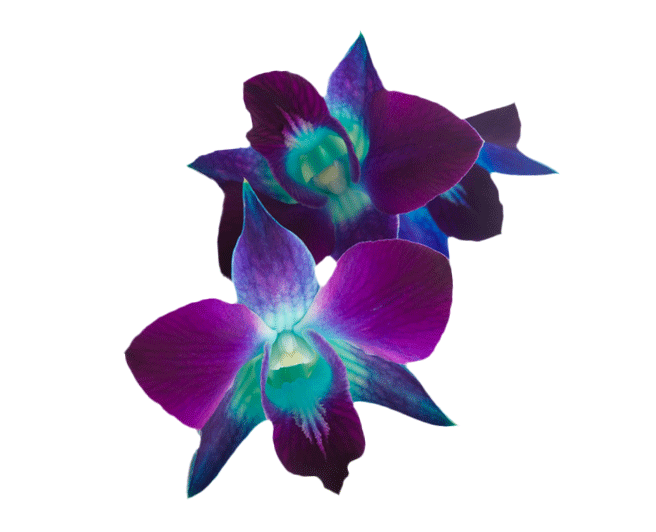
Aloha & Welcome
Our entire ‘ohana, our Queen’s family, is dedicated to providing you with the highest quality care and exceptional service. Putting patients first is our number one priority.
Whether you are a patient, caregiver, or family member, you are an important part of your health care team. We encourage you to actively participate in your overall care and well-being. Please talk to your health care team about any concerns you may have.
It is our privilege to care for you. Please don’t hesitate to let us know if there’s anything we can do to assist you throughout your stay at Queen’s.

THE QUEEN’S MISSION
To fulfill the intent of Queen Emma and King Kamehameha IV to provide in perpetuity quality health care services to improve the well-being of Native Hawaiians and all of the people of Hawai‘i.
OUR PLEDGE TO YOU
We pledge to you our commitment to safety and quality, and that we will work as one team to give you the very best care possible. We will treat you as if you are a member of our family, our ‘ohana, and all that we do will be guided by our C.A.R.E. Values of Compassion, Aloha, Respect, and Excellence.
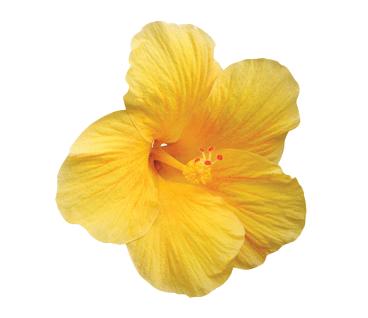
Our History
Founded in 1859 by Queen Emma and King Kamehameha IV, The Queen’s Medical Center—originally named and still commonly referred to as Queen’s Hospital—is the largest private, nonprofit hospital in the city, with 575 acute care beds.
For more than 160 years, Queen’s has been on the cutting edge of advancements in health care. That’s one reason why the people of Hawai‘i and the Pacific Basin have entrusted us with their care. We have a legacy that is deeply woven into the culture of our communities—one of compassion, aloha, respect and excellence.
WHY CHOOSE THE QUEEN’S MEDICAL CENTER?
As one of our four hospitals, The Queen’s Medical Center serves as the major referral center for cancer, heart disease, neuroscience, orthopedics, surgery, emergency medicine and behavioral health. The Queen’s Medical Center has the only organ transplant program in the state of Hawai‘i and is the state’s first and only level one trauma center.
As part of The Queen’s Health System, Queen’s Medical Center has access to some of the best health care resources in the state. We are honored by our recognitions and share them with you, our ‘ohana.
• In 2017-2018, U.S. News & World Report voted Queen’s Medical Center “Best Hospital in Honolulu”
• A major teaching hospital for the University of Hawaii John A. Burns School of Medicine serving as one of the largest clinical sites for medical students

Useful Phone Numbers
Main Hospital Number/Operator
808-691-1000 / EXT. 0
808-691-4321 / EXT. 14321
808-691-5300 / EXT. 15300
808-691-4331 / option 3
808-691-4239 / EXT. 4239
808-691-4331 / option 2
808-691-4430 / EXT. 14430
808-691-4210 / EXT. 14210
808-691-4602 / EXT. 14602
808-691-4331 / option 1
808-691-4508 / EXT. 14508
808-691-4243 / EXT. 14243
808-691-4418 / EXT. 14418
808-691-4397 / EXT. 14397
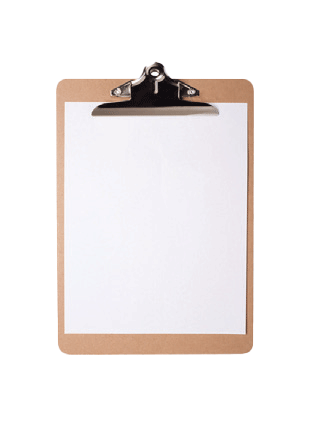
Checklist for Admissions
- Picture ID (State ID or Driver’s License)
- Health Insurance Card
- Medications and/or List of Medications
- Set of Clothes/Shoes for the Trip Home List of Medications
- Personal Toiletries/Shaver
- Personal Items
- Eyeglasses
- Hearing Aid and Batteries
- Dentures and Denture Paste
- Advance Health Care Directive
- Cell Phone and Charger
A NOTE ABOUT VALUABLES
It’s best to leave jewelry, money, and other valuable items at home, or to send them home with a friend or family member. If this is not possible, we have a limited number of safety deposit boxes available to store valuables during your hospital stay. Speak to your nurse or call Patient Financial Services at ext. 14210, Monday–Friday, 8:00am–4:00pm.

During Your Stay
We are here to assist you before, during and after your visit to The Queen’s Medical Center. We hope the following information will make your time here as pleasant and comfortable as possible.
The Queen’s Medical Center is a smoke-free facility. Smoking is not permitted anywhere in the hospital, including on the lanai or anywhere on hospital grounds.
For privacy, photography and video recording is not allowed. For patient safety, please refrain from touching any equipment and machinery. Notify a nurse with concerns related to alarms.
Patients and visitors should park in Miller Garage. Enter via the Punchbowl Street main entrance to the hospital or via Miller Street. Automated Parking Payment Systems with PayStations are located near the exits from the hospital. When you are ready to leave, you may pay at a PayStation OR at the exit gate of the parking structure.
Parking for admitted patients or the person transporting them is free on the day of admission and on the day of discharge. Please validate your ticket at Admitting & Registration. Visitors may also validate parking tickets here. Patients expected to remain hospitalized for longer than two weeks should speak to their care team to arrange for a long-term parking pass.
Providing patients with a quiet, healing environment is important. If you are in a semi-private room, we ask you to consider your roommate’s privacy and need for rest. Ear plugs and sleeping masks are available at your request and are free of charge. Simply speak to your nurse. Mahalo for following these semi-private room guidelines:
- We ask you to use soft voices and keep disruptions to a minimum. Please remind visitors to maintain a quiet atmosphere.
- Depending on your condition, your nurse may further limit the number of visitors and the length of visits.
- Use the television, phone, and lights in a manner that does not disturb others.
- Silence mobile phones.
Bathrooms are for patient use only. Staff can direct visitors to the nearest visitor bathroom.
Your room will be cleaned and disinfected daily. If you need additional housekeeping services, please call ext. 14331, option 2.
Your family and friends may reach you through Queen’s operators at 691- 1000 from 7:00am–10:00pm. Before and after hours calls will be referred to the nurses’ station to ensure your rest is not disturbed.
- To call within the hospital, dial 1 plus the 4-digit extension.
- To place a local call, dial 9 then the number.
- To call long distance, dial 0 to reach a Queen’s operator forassistance.
Text telephones and amplified phones for the hearing and speech impaired are available. Please call Patient Relations at ext. 14602 for assistance.
Use your bedside speaker to turn on, adjust volume, and change channels on your TV. To use the patient interactive TV system, dial ext. 16400 from your patient telephone and follow the prompts. Your TV provides important information about your hospital stay, as well as videos related to procedures you may undergo. There is also a welcome video on Channel 2. Please refer to your Admission Packet folder for the TV channel information insert.
Free Wi-Fi is available in patient rooms and all public areas of the hospital. Select QMCGUEST to log in and view the instructions and usage restrictions.
Bank of Hawaii ATMs are located at the Level 1 Information Desk and in the main lobby next to Café Aloha.
We are here to assist you before, during and after your visit to The Queen’s Medical Center. We hope the following information will make your time here as pleasant and comfortable as possible.
NO SMOKING
The Queen’s Medical Center is a smoke-free facility. Smoking is not permitted anywhere in the hospital, including on the lanai or anywhere on hospital grounds.
PRIVACY AND SAFETY
For privacy, photography and video recording is not allowed. For patient safety, please refrain from touching any equipment and machinery. Notify a nurse with concerns related to alarms.
PARKING
Patients and visitors should park in Miller Garage. Enter via the Punchbowl Street main entrance to the hospital or via Miller Street. Automated Parking Payment Systems with PayStations are located near the exits from the hospital. When you are ready to leave, you may pay at a PayStation OR at the exit gate of the parking structure.
Parking for admitted patients or the person transporting them is free on the day of admission and on the day of discharge. Please validate your ticket at Admitting & Registration. Visitors may also validate parking tickets here. Patients expected to remain hospitalized for longer than two weeks should speak to their care team to arrange for a long-term parking pass.
SEMI-PRIVATE ROOMS
Providing patients with a quiet, healing environment is important. If you are in a semi-private room, we ask you to consider your roommate’s privacy and need for rest. Ear plugs and sleeping masks are available at your request and are free of charge. Simply speak to your nurse. Mahalo for following these semi-private room guidelines:
- We ask you to use soft voices and keep disruptions to a minimum. Please remind visitors to maintain a quiet atmosphere.
- Depending on your condition, your nurse may further limit the number of visitors and the length of visits.
- Use the television, phone, and lights in a manner that does not disturb others.
- Silence mobile phones.
Bathrooms are for patient use only. Staff can direct visitors to the nearest visitor bathroom.
HOUSEKEEPING
Your room will be cleaned and disinfected daily. If you need additional housekeeping services, please call ext. 14331, option 2.
TELEPHONE
Your family and friends may reach you through Queen’s operators at 691- 1000 from 7:00am–10:00pm. Before and after hours calls will be referred to the nurses’ station to ensure your rest is not disturbed.
- To call within the hospital, dial 1 plus the 4-digit extension.
- To place a local call, dial 9 then the number.
- To call long distance, dial 0 to reach a Queen’s operator forassistance.
VISITORS
Visitors are welcome daily from 8:00am–8:00pm. Visitors are limited to two (2) people at a time. Visiting minors must be accompanied by a responsible adult at all times. Overnight visitors are currently not allowed. Visitors who remain in the hospital after 8:00pm will need to request a Visitor’s Pass from Security in the Emergency Department. The Surgery Center Waiting Room is limited to two (2) visitors per patient. Other waiting areas are available if you have more visitors.
TEXT TELEPHONES (TTY)
Text telephones and amplified phones for the hearing and speech impaired are available. Please call Patient Relations at ext. 14602 for assistance.
TELEVISION
Use your bedside speaker to turn on, adjust volume, and change channels on your TV. To use the patient interactive TV system, dial ext. 16400
from your patient telephone and follow the prompts. Your TV provides important information about your hospital stay, as well as videos related
to procedures you may undergo. There is also a welcome video on Channel 2. Please refer to your Admission Packet folder for the TV channel information insert.
INTERNET
Free Wi-Fi is available in patient rooms and all public areas of the hospital. Select QMCGUEST to log in and view the instructions and usage restrictions.
ATM
Bank of Hawaii ATMs are located at the Level 1 Information Desk and in the main lobby next to Café Aloha.
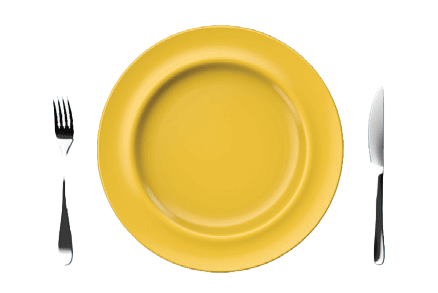
Dining Service
You, your caregiver, or family member may order your meals from your room by dialing ext. 14331 (option 1) or from outside the hospital by dialing 691-4331. Meals can be ordered up to a day in advance. You may order all meals for the day at once, specifying your preferred delivery times. For your convenience, we suggest ordering your breakfast the night before. Our Customer Service Representatives are available to take your meal orders from 6:30am–10:30pm, 7 days a week. Dining hours are 6:30am– 6:30pm.
Visitors in Tower 10 may order At Your Request Room Service meals. Guest meals are $10 and include an entree, two sides, soup or salad, dessert, and a beverage. Payment can be made by credit card, debit card, or cash. For more information, email culinary@queens.org
Other Dining Options for Visitors
The Harkness Dining Room serves breakfast, lunch, and dinner featuring local specials and fresh, healthy options, including a salad bar. Daily offerings also include soups, salads, sandwiches, desserts, snacks, coffee, and a wide selection of bottled and fountain drinks. Open daily from 6:15am–6:00pm
Located in the lobby, Café Aloha serves Starbucks coffee, cold beverages, pastries, house-made sandwiches, and salads. Open 24 hours a day, 7 days a week.
Located in Physicians Office Building (POB) 1, street level (from hospital, take the POB 1 elevators to 3rd floor). Café Queen’s serves Starbucks coffee, cold beverages, house-made bentos, and hot foods. Open Monday–Friday, 6:30am–3:00pm.
Located in the Physicians Office Building 2 lobby, CQ2 Bistro serves Starbucks coffee and espresso, tea, smoothies, breakfast and lunch bentos, sandwiches, grilled cheese, tuna melt, special melt of the day, pizza, and snacks. Open Monday–Friday, 6:30am–1:30pm.
Located in the Physicians Office Building 3 lobby, the café serves premium coffee and espresso, drinks, sandwiches, made-to-order grilled cheese, grilled panini, soups, bentos, musubi, and snacks. Vegetarian and vegan options are available. Open Monday–Friday, 7:00am–3:00pm.
Vending machines offering beverages and snacks are located outside the Emergency Department, Queen Emma 10th floor, and along the walkway to the Harkness Dining Room.
Harkness Dining Room
The Harkness Dining Room serves breakfast, lunch, and dinner featuring local specials and fresh, healthy options, including a salad bar. Daily offerings also include soups, salads, sandwiches, desserts, snacks, coffee, and a wide selection of bottled and fountain drinks. Open daily from 6:15am–6:00pm
Café Aloha
Located in the lobby, Café Aloha serves Starbucks coffee, cold beverages, pastries, house-made sandwiches, and salads. Open 24 hours a day, 7 days a week.
Café Queen’s
Located in Physicians Office Building (POB) 1, street level (from hospital, take the POB 1 elevators to 3rd floor). Café Queen’s serves Starbucks coffee, cold beverages, house-made bentos, and hot foods. Open Monday–Friday, 6:30am–3:00pm.
CQ2 Bistro
Located in the Physicians Office Building 2 lobby, CQ2 Bistro serves Starbucks coffee and espresso, tea, smoothies, breakfast and lunch bentos, sandwiches, grilled cheese, tuna melt, special melt of the day, pizza, and snacks. Open Monday–Friday, 6:30am–1:30pm.
Cooking FRESH Café
Located in the Physicians Office Building 3 lobby, the café serves premium coffee and espresso, drinks, sandwiches, made-to-order grilled cheese, grilled panini, soups, bentos, musubi, and snacks. Vegetarian and vegan options are available. Open Monday–Friday, 7:00am–3:00pm.
Vending Machine
Vending machines offering beverages and snacks are located outside the Emergency Department, Queen Emma 10th floor, and along the walkway to the Harkness Dining Room.
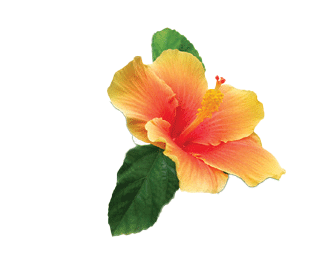
Patient Services
Queen’s offers hotel-style concierge hospitality for non-medical needs tailored to the health care environment. With a goal to exceed expectations, extended personal services for patients and their families include help with:
- Air travel arrangements
- Ground transportation
- Business services
- Hotel accommodations
- Laundry services
- Coordination with health care staff
- Meals at Queen’s & referrals to area restaurants
- Catering for special events on campus (birthdays, weddings, etc.)
CONTACTING CONCIERGE SERVICES
Available 7:30am–9:30pm, 7 days a week including holidays. You may also visit the Concierge Desk in the main lobby from 8:00am–3:00pm, Monday–Friday (except holidays). Call ext. 14331 from any hospital phone or 691-4331 from any mobile or outside phone, and select option 3.
Over 250 languages are available free of charge. Please see page 5 of this Guide, or call Patient Relations at ext. 14602.
Located in the lobby, Nā Makana offers a collection of quality merchandise with a wide range of prices and tastes. Merchandise includes well-known made-in- Hawai‘i brands, jewelry, Queen’s logo wear, sundries, fresh flower arrangements, lei, and gift plants. Proceeds from Nā Makana go back to the hospital to provide healh care services to the people of Hawai‘i. Nā Makana can be reached at 808- 691-4239 (ext. 14239 from inside the hospital) or by email at giftshop@queens.org. Hours of operation are Monday–Friday, 7:30am–4:00pm.
Patient Relations coordinators serve as your advocate, providing a link between you and the hospital. They can assist you with:
- Questions about patient rights and responsibilities
- Compliments or concerns about care and services
- Provision of language services, including interpreters and translated documents
Hours are 8:00am–4:30pm, Monday–Friday. Contact a Patient Relations coordinator at ext. 14602 from any hospital phone, or at 691-4602 from a mobile or outside phone. Patient Relations can also be contacted by email at patientrelations@queens.org.
Family members and caregivers may call ‘Ohana Lifeline Assistance or the Crisis Nurse if they have concerns about a patient’s condition changing or worsening while hospitalized. ‘Ohana Lifeline Assistance can be reached at ext. 15855.
Chaplains are available to provide spiritual and emotional care to patients and their loved ones of all faiths and beliefs 24 hours a day, 7 days a week. Chaplains take a spiritual approach that is more basic than a specific religion or creed, and addresses the way an individual connects to the divine, to self, and to others to create meaning in their lives.
To arrange a visit by a chaplain, talk to your nurse or dial the operator at ext. 0. Our hospital chapel can be found by taking the Queen Emma elevators to Level 4. Services are available in the chapel on Sundays at 9:00am (interfaith service) and at 2:00pm (Catholic Mass).
Advance Care planning help you state your wishes on wanted or unwanted health care choices in the event you become very ill and are no longer able to make health care decisions. These choices will help guide the health care team and persons important to you. If you desire, health care decisions can be written down on an Advance Health Care Directive (Living Will). Please ask a social worker for help in completing an Advance Health Care Directive.
Patient Financial Counseling can assist with Health Insurance and Financial questions/concerns during your hospital stay. They also offer assistance with other government assistance programs such as Medicaid. Patient Financial Counseling is located on the first floor, of the Nalani Building, across from the Admitting office. They can be reached at ext. 14210, Monday–Friday, 8:00am– 4:00pm. Billing information and a copy of “Avoiding Surprises in Your Medical Bills: A Guide for Consumers” can be found at www.queens.org. Click on the “Pay Your Bill” tab to find the Guide.
Ask your nurse to call Volunteer Services if you would like to request free reading materials including reading glasses, magazines and books, as well as art supplies such as crayons, coloring books and crossword puzzles, subject to availability. For more information about available materials, please call ext. 14397.
CONCIERGE SERVICES
Queen’s offers hotel-style concierge hospitality for non-medical needs tailored to the health care environment. With a goal to exceed expectations, extended personal services for patients and their families include help with:
- Air travel arrangements
- Ground transportation
- Business services
- Hotel accommodations
- Laundry services
- Coordination with health care staff
- Meals at Queen’s & referrals to area restaurants
- Catering for special events on campus (birthdays, weddings, etc.)
CONTACTING CONCIERGE SERVICES
Available 7:30am–9:30pm, 7 days a week including holidays. You may also visit the Concierge Desk in the main lobby from 8:00am–3:00pm, Monday–Friday (except holidays). Call ext. 14331 from any hospital phone or 691-4331 from any mobile or outside phone, and select option 3.
INTERPRETER SERVICES
Over 250 languages are available free of charge. Please see page 5 of this Guide, or call Patient Relations at ext. 14602.
NĀ MAKANA GIFT SHOP
Located in the lobby, Nā Makana offers a collection of quality merchandise with a wide range of prices and tastes. Merchandise includes well-known made-in- Hawai‘i brands, jewelry, Queen’s logo wear, sundries, fresh flower arrangements, lei, and gift plants. Proceeds from Nā Makana go back to the hospital to provide healh care services to the people of Hawai‘i. Nā Makana can be reached at 808- 691-4239 (ext. 14239 from inside the hospital) or by email at giftshop@queens.org. Hours of operation are Monday–Friday, 7:30am–4:00pm.
PATIENT RELATIONS
Patient Relations coordinators serve as your advocate, providing a link between you and the hospital. They can assist you with:
- Questions about patient rights and responsibilities
- Compliments or concerns about care and services
- Provision of language services, including interpreters and translated documents
Hours are 8:00am–4:30pm, Monday–Friday. Contact a Patient Relations coordinator at ext. 14602 from any hospital phone, or at 691-4602 from a mobile or outside phone. Patient Relations can also be contacted by email at patientrelations@queens.org.
‘OHANA LIFELINE ASSISTANCE
Family members and caregivers may call ‘Ohana Lifeline Assistance or the Crisis Nurse if they have concerns about a patient’s condition changing or worsening while hospitalized. ‘Ohana Lifeline Assistance can be reached at ext. 15855.
HOSPITAL MINISTRY
Chaplains are available to provide spiritual and emotional care to patients and their loved ones of all faiths and beliefs 24 hours a day, 7 days a week. Chaplains take a spiritual approach that is more basic than a specific religion or creed, and addresses the way an individual connects to the divine, to self, and to others to create meaning in their lives.
To arrange a visit by a chaplain, talk to your nurse or dial the operator at ext. 0. Our hospital chapel can be found by taking the Queen Emma elevators to Level 4. Services are available in the chapel on Sundays at 9:00am (interfaith service) and at 2:00pm (Catholic Mass).
ADVANCE HEALTH CARE DIRECTIVES
Advance Care planning help you state your wishes on wanted or unwanted health care choices in the event you become very ill and are no longer able to make health care decisions. These choices will help guide the health care team and persons important to you. If you desire, health care decisions can be written down on an Advance Health Care Directive (Living Will). Please ask a social worker for help in completing an Advance Health Care Directive.
PATIENT FINANCIAL SERVICES
Patient Financial Counseling can assist with Health Insurance and Financial questions/concerns during your hospital stay. They also offer assistance with other government assistance programs such as Medicaid. Patient Financial Counseling is located on the first floor, of the Nalani Building, across from the Admitting office. They can be reached at ext. 14210, Monday–Friday, 8:00am– 4:00pm. Billing information and a copy of “Avoiding Surprises in Your Medical Bills: A Guide for Consumers” can be found at www.queens.org. Click on the “Pay Your Bill” tab to find the Guide.
READING AND ART MATERIALS
Ask your nurse to call Volunteer Services if you would like to request free reading materials including reading glasses, magazines and books, as well as art supplies such as crayons, coloring books and crossword puzzles, subject to availability. For more information about available materials, please call ext. 14397.

Your Care Team
Your care team consists of skilled health professionals who work together to provide you with the very best care possible. Your care team includes Doctors, Nurses, and Nursing Assistants. Other members of your care team may also include the following.
HOSPITALISTS
A hospitalist is a doctor who cares for hospitalized patients from the time
of admission until the patient leaves the hospital. They do not see patients outside the hospital, so they are able to give their complete attention to their hospitalized patients. A hospitalist will review your past medical records, consult with your primary care physician, and perform a comprehensive history and physical after admission. Available 24 hours a day, 7 days a week for your care, a hospitalist’s main focus is internal medicine, which involves the overall medical care of a patient.
IMAGING AND LABORATORY TECHNICIANS
Imaging techs perform X-rays, MRI scans, and CT scans that create pictures to show doctors tissue, organs, and bones inside your body. Lab techs test blood, tissue, and bodily fluids to detect disease or infections.
THERAPISTS
There are four types of therapists who may work with you during your stay.
- Physical Therapists use special exercises and equipment to help patients regain or improve physical abilities and strength.
- Occupational Therapists help patients live as independently as possible by improving the activities of daily life.
- Speech Therapists treat and manage swallowing and speech difficulties.
- Respiratory Therapists treat and manage breathing difficulties.
CARE COORDINATION TEAM
Available 7 days a week, nurse case managers and social workers are a part of your patient care team. They are here to assist you, your family, or caregivers in arranging care, services, and support you might need as you continue your recovery after discharge from the hospital.
A case manager or social worker can meet with you and your designated family member or caregiver to assess your discharge needs and help you with aftercare arrangements. To reach any of these staff members, ask your nurse or call Care Coordination directly at ext. 14243, or at 691-4243 from a mobile or outside phone.

We invite you to sign up for MyChart® to manage and receive information about your health online. MyChart gives you convenient and secure online access to portions of your health record. To learn more and to sign up, follow the instructions on the After Visit Summary you receive when you are discharged, or visit mychart.queens.org.
Your Safety
Your room has a nurse call system at your bed and in your bathroom. Use it at any time to call us for help. We will be happy to show you how to use the nurse call system.
Your doctor will advise you if it is safe for you to get out of bed by yourself. To get out of bed, sit up first, then move slowly from the bed. Do not rush. If you are connected to any equipment (such as oxygen, IVs, pumps, drains, tubes), please call us for help. Do not go barefoot; use non-skid socks or slippers.
Always show your wristband to anyone who provides care to you. Please follow the diet your doctor ordered because it is a part of your care. Depending on your illness and treatments, you may be put on a special diet, such as cardiac, diabetic, or clear liquids.
It is important to do mouth/oral care four times a day to clean your mouth of germs. This helps prevent pneumonia, which is a serious lung infection. Your nurse will provide you with a toothbrush and toothpaste. If you need help, please let your nurse know.
An infection is an abnormal condition in a part of the body caused by the presence of germs. This is what you can do to help prevent infections:
- Wear a mask when instructed to protect yourself or others from infections. Your health care team members may also wear masks, gloves, and gowns to prevent the spread of infections.
Tell your nurse if:
- The dressing over the IV catheter in your arm gets loose or wet
- The dressing over your wound gets loose or wet
- Any drainage tube or catheter gets loose or comes out
- Deep breathing exercises can help prevent pneumonia.
- Walking exercises promote circulation, wound healing, and prevent blood clots
- If a family member or friend feels sick, please tell them not to visit until they are well.
Cleaning your hands is the #1 way to prevent the spread of infection.
- Wash your hands often—before and after eating, after using the bathroom, and
- after blowing your nose, coughing, or sneezing.
- If you can’t get to the sink, ask a staff member to help you with hand washing or
- the use of a hand sanitizer.
- It’s all right to remind your doctors, nurses, and others caring for you to wash their
- hands before working with you.
- Ask your visitors to wash or sanitize their hands when they visit you.
Medication safety means getting the right medicine in the right dose, at the right time. During your hospital stay, your health care team will take many important steps to ensure this happens. You can also help to ensure medication safety.
Be ready to tell us:
- Your allergies
- Reactions you are having or have had in the past with medicines
- Medicines you are taking at home, including any medication your doctors have prescribed, over-the-counter medicines, vitamins, and herbal supplements
Remind us to tell you about any medicine we give you:
- What it does
- Possible side effects and when to alert the nurse
- You may also ask for written information about your medicines.
- Do not take any medicine brought from home while you are in the hospital unless the pharmacist or your doctor has told you to do so. This includes vitamins and herbal supplements.
- Tell us what time of day you normally take your medicines. Let us know if you do not get your medicine at that time.
Don’t hesitate to speak up if you have any concerns or questions about your medicines.
Falls are more likely if you are weak, tired, or sick. Medicines that make you feel sleepy, confused, or dizzy can also contribute to a fall. Many falls happen when patients try to get out of bed to go to the bathroom or while in the bathroom. This is what you can do to decrease your chance of falling and hurting yourself:
- If you need help, plan ahead by pressing your call light as soon as you think about using the bathroom.
- Your doctor will advise you if it is safe for you to get out of bed by yourself. To get out of bed, sit up first, and then move slowly from the bed. Do not rush. If you are connected to any equipment (such as oxygen, IVs, pumps, drains, or tubes), please call us for help.
- Do not go barefoot; use non-skid socks or slippers.
- Call for help if you feel weak, dizzy, or light-headed. Do not get up by yourself.
- Turn on the lights. Do not walk in the dark.
- Let us know if you use a walking aid (walker, cane, etc.) at home and we will keep it within reach. Remember to use it.
- Do not use bedside tables for support, as they have wheels and could roll away from you.
- Let us know if there is a spill or wet area on the floor so it can be cleaned up quickly.
- A bed alarm or chair alarm may be used to remind you to call for help when getting up. Do not turn it off.
NOTE
For your safety, there may be times when a staff member will remain with you in the bathroom.
NURSE CALL SYSTEM
Your room has a nurse call system at your bed and in your bathroom. Use it at any time to call us for help. We will be happy to show you how to use the nurse call system.
GETTING OUT OF BED
Your doctor will advise you if it is safe for you to get out of bed by yourself. To get out of bed, sit up first, then move slowly from the bed. Do not rush. If you are connected to any equipment (such as oxygen, IVs, pumps, drains, tubes), please call us for help. Do not go barefoot; use non-skid socks or slippers.
MEDICATIONS & TREATMENTS
Always show your wristband to anyone who provides care to you. Please follow the diet your doctor ordered because it is a part of your care. Depending on your illness and treatments, you may be put on a special diet, such as cardiac, diabetic, or clear liquids.
ORAL CARE
It is important to do mouth/oral care four times a day to clean your mouth of germs. This helps prevent pneumonia, which is a serious lung infection. Your nurse will provide you with a toothbrush and toothpaste. If you need help, please let your nurse know.
PREVENTING INFECTIONS
An infection is an abnormal condition in a part of the body caused by the presence of germs. This is what you can do to help prevent infections:
- Wear a mask when instructed to protect yourself or others from infections. Your health care team members may also wear masks, gloves, and gowns to prevent the spread of infections.
Tell your nurse if:
- The dressing over the IV catheter in your arm gets loose or wet
- The dressing over your wound gets loose or wet
- Any drainage tube or catheter gets loose or comes out
- Deep breathing exercises can help prevent pneumonia.
- Walking exercises promote circulation, wound healing, and prevent blood clots
- If a family member or friend feels sick, please tell them not to visit until they are well.
HAND HYGIENE
Cleaning your hands is the #1 way to prevent the spread of infection.
- Wash your hands often—before and after eating, after using the bathroom, and
- after blowing your nose, coughing, or sneezing.
- If you can’t get to the sink, ask a staff member to help you with hand washing or
- the use of a hand sanitizer.
- It’s all right to remind your doctors, nurses, and others caring for you to wash their
- hands before working with you.
- Ask your visitors to wash or sanitize their hands when they visit you.
MEDICATION SAFETY
Medication safety means getting the right medicine in the right dose, at the right time. During your hospital stay, your health care team will take many important steps to ensure this happens. You can also help to ensure medication safety.
Be ready to tell us:
- Your allergies
- Reactions you are having or have had in the past with medicines
- Medicines you are taking at home, including any medication your doctors have prescribed, over-the-counter medicines, vitamins, and herbal supplements
Remind us to tell you about any medicine we give you:
- What it does
- Possible side effects and when to alert the nurse
- You may also ask for written information about your medicines.
- Do not take any medicine brought from home while you are in the hospital unless the pharmacist or your doctor has told you to do so. This includes vitamins and herbal supplements.
- Tell us what time of day you normally take your medicines. Let us know if you do not get your medicine at that time.
Don’t hesitate to speak up if you have any concerns or questions about your medicines.
PREVENTING FALLS
Falls are more likely if you are weak, tired, or sick. Medicines that make you feel sleepy, confused, or dizzy can also contribute to a fall. Many falls happen when patients try to get out of bed to go to the bathroom or while in the bathroom. This is what you can do to decrease your chance of falling and hurting yourself:
- If you need help, plan ahead by pressing your call light as soon as you think about using the bathroom.
- Your doctor will advise you if it is safe for you to get out of bed by yourself. To get out of bed, sit up first, and then move slowly from the bed. Do not rush. If you are connected to any equipment (such as oxygen, IVs, pumps, drains, or tubes), please call us for help.
- Do not go barefoot; use non-skid socks or slippers.
- Call for help if you feel weak, dizzy, or light-headed. Do not get up by yourself.
- Turn on the lights. Do not walk in the dark.
- Let us know if you use a walking aid (walker, cane, etc.) at home and we will keep it within reach. Remember to use it.
- Do not use bedside tables for support, as they have wheels and could roll away from you.
- Let us know if there is a spill or wet area on the floor so it can be cleaned up quickly.
- A bed alarm or chair alarm may be used to remind you to call for help when getting up. Do not turn it off.
NOTE
For your safety, there may be times when a staff member will remain with you in the bathroom.
Preparing to Leave
During your stay, your care team will work with you to plan for your discharge. Discharges usually happen before 11:00am. You and your family members or caregivers are important members of the planning team. By planning ahead, you will have all the help and resources you need when you get home.
DISCHARGE PHARMACY
Located on Level 1, the Queen’s Discharge Pharmacy is available to provide discharge prescriptions. If you need a prescription filled at the Discharge Pharmacy, please inform your nurse in advance of your discharge. Use the Pauahi elevators to reach the Discharge Pharmacy. You should visit your regular pharmacy for prescription refills, as they keep a complete record of your medication history.
DISCHARGE HOSPITALITY LOUNGE
Queen’s provides a Discharge Hospitality Lounge for your comfort and convenience on the street level near the hospital’s entrance, providing easy and convenient pick-up. Your nurse will provide you with additional information about the Lounge and a member of our staff will escort you there.
The Discharge Hospitality Lounge offers comfortable recliners, telephones, refreshments, restrooms, Wi-Fi, and television. It is staffed by health care professionals who can help with scheduling, transportation, or delivery of discharge medications. A pharmacist can review your prescriptions with you in the Lounge and answer any questions you may have about your medications.
PATIENT ESCORT
When it is time to pick up your loved one, family members and caregivers should call the Discharge Hospitality Lounge at 691-8690 as they approach the hospital’s main entrance. A member of our staff will safely escort the patient from the Lounge to your waiting vehicle.
CARE INSTRUCTIONS
Please talk to your nurse and doctor about your recovery at home and any concerns you may have. We encourage you to ask questions to make sure you understand your care instructions. When it is time for you to be discharged from the hospital, it is important for you and your caregiver to partner with your care team to review the checklists below.
Make Sure You Know
- How to care for yourself in your continued recovery after discharge from the hospital. This includes how to the manage the activities of daily living, such as bathing, walking, meal preparation, dressing, and using the bathroom.
- Any dietary restrictions, including which foods and beverages to avoid and which are encouraged.
- What kinds of activities you can and can’t do, and for how long.
- What medicines you must take, why, in what dosage, and for how long.
- What signs and symptoms to watch for related to your hospital stay.
- Where you will be going after your hospital stay and how you will get there.
Make Sure You Have
- Everything you need, such as equipment, household help, and home health care services.
- A follow-up appointment with a health care provider
- Transportation to your follow-up appointment.
LANGUAGE INTERPRETER SERVICES
If you primarily speak a language other than English or require sign language services,
please contact Patient Relations at ext. 14602 and a qualified interpreter service will be
provided free of charge. Several languages are listed below, and 250+ are available.
Ilokano (Ilocano)
PAKDAAR: Nu saritaem ti Ilocano, ti serbisyo para ti baddang ti lengguahe nga awanan bayadna, ket sidadaan para kenyam. Awagan ti 1-808-691-4602 (Queen’s Medical Center – Punchbowl).
Tagalog (Tagalog – Filipino)
PAUNAWA: Kung nagsasalita ka ng Tagalog, maaari kang gumamit ng mga serbisyo ng tulong sa wika nang walang bayad. Tumawag sa 1-808-691-4602 (Queen’s Medical Center – Punchbowl).
日本語 (Japanese)
注意事項:日本語を話される場合、無料の言語支援をご利用いただけます。 1-808-691-4602 (Queen’s Medical Center – Punchbowl). まで、お電話にてご連絡ください。
繁體中文 (Chinese)
注意:如果您使用繁體中文,您可以免費獲得語言援助服務。請致電 1-808-691-4602 (Queen’s Medical Center – Punchbowl).
한국어 (Korean)
주의: 한국어를 사용하시는 경우, 언어 지원 서비스를 무료로 이용하실 수 있습니다. 1-808-691-4602 (Queen’s Medical Center – Punchbowl). 번으로 전화해 주십시오.
Español (Spanish)
ATENCIÓN: si habla español, tiene a su disposición servicios gratuitos de asistencia lingüística. Llame al 1-808-691-4602 (Queen’s Medical Center – Punchbowl).
Tiếng Việt (Vietnamese)
CHÚ Ý: Nếu bạn nói Tiếng Việt, có các dịch vụ hỗ trợ ngôn ngữ miễn phí dành cho bạn. Gọi số 1-808-691-4602 (Queen’s Medical Center – Punchbowl).
Gagana fa’a Sāmoa (Samoan)
MO LOU SILAFIA: Afai e te tautala Gagana fa’a Sāmoa, o loo iai auaunaga fesoasoan, e fai fua e leai se totogi, mo oe, Telefoni mai: 1-808-691-4602 (Queen’s Medical Center – Punchbowl).
Foosun Chuuk (Trukese)
MEI AUCHEA: Ika iei foosun fonuomw: Foosun Chuuk, iwe en mei tongeni omw kopwe angei aninisin chiakku, ese kamo. Kori 1-808-691-4602 (Queen’s Medical Center – Punchbowl).
hoʻokomo ʻōlelo (Hawaiian)
E NĀNĀ MAI: : Inā hoʻopuka ʻoe i ka ʻōlelo [hoʻokomo ʻōlelo], loaʻa ke kōkua manuahi iā ʻoe. E kelepona iā 1-808-691-4602 (Queen’s Medical Center – Punchbowl).
Kajin Ṃajōḷ (Marshallese)
LALE: Ñe kwōj kōnono Kajin Ṃajōḷ, kwomaroñ bōk jerbal in jipañ ilo kajin ṇe aṃ ejjeḷọk wōṇāān. Kaalọk 1-808-691-4602 (Queen’s Medical Center – Punchbowl).
Bisaya (Bisayan)
ATENSYON: Kung nagsulti ka og Cebuano, aduna kay magamit nga mga serbisyo sa tabang sa lengguwahe, nga walay bayad. Tawag sa 1-808-691-4602 (Queen’s Medical Center – Punchbowl).
Tonga (Tongan)
FAKATOKANGA’I: Kapau ‘oku ke Lea-Fakatonga, ko e kau tokoni fakatonu lea ‘oku nau fai atu ha tokoni ta’etotongi, pea teke lava ‘o ma’u ia. Telefoni mai 1-808-691-4602 (Queen’s Medical Center – Punchbowl).
ພາສາລາວ (Lao)
ໂປດຊາບ: ຖ້າວ່າ ທ່ານເວົ້າພາສາ ລາວ, ການບໍລິການຊ່ວຍເຫຼືອດ້ານພາສາ, ໂດຍບໍ່ເສັຽຄ່າ, ແມ່ນມີພ້ອມໃຫ້ທ່ານ. ໂທຣ 1-808-691-4602 (Queen’s Medical Center – Punchbowl).
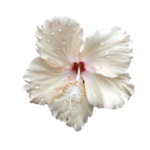
MAHALO FOR ALLOWING US TO CARE FOR YOU.
808-691-1000 | queens.org
The Queen’s Medical Center
1301 Punchbowl Street
Honolulu, Hawai‘i 96813

